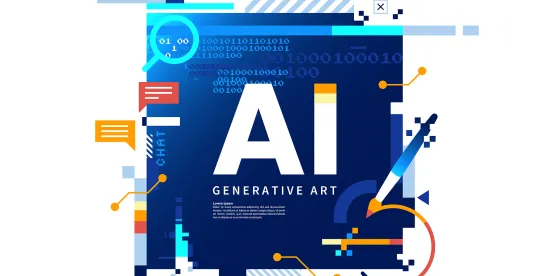On June 2, 2025, the California Senate approved a bill, called the “No Robo Bosses Act,” that would restrict when and how employers can use automated decision-making systems and artificial intelligence (AI) to make employment-related decisions without human oversight. The bill comes as California considers various overlapping pieces of legislation and proposed regulations to manage AI, while the U.S. Congress is considering a potential moratorium on state regulation of AI technology.
Quick Hits
- The proposed “No Robo Bosses Act” (SB 7) in California aims to regulate the use of automated decision-making systems in employment by mandating human oversight and written notice to employees about such systems.
- The bill would prohibit employers from relying primarily on automated systems for critical employment decisions and allows affected employees to appeal those decisions within a specified timeframe.
The No Robo Bosses Act, Senate Bill (SB) No. 7, introduced by California Senator Jerry McNerney on March 6, 2025, and backed by some major labor unions, would require employers to provide written notice that an “automated decision system” (ADS) is used to make employment-related decisions and require human oversight when ADSs are used to guide employment-related decisions.
The bill, which is now under consideration in the California Assembly, would further prohibit employers or vendors engaged by employers from using such systems to “predict” workers’ future behavior or performance.
“The Senate’s passage of SB 7 … sends a strong message: The use of AI in the workplace needs human oversight to ensure that California businesses are not operated by robo bosses,” Senator McNerney said in a statement. “AI must remain a tool controlled by humans, not the other way around.”
SB 7 comes amid employers’ widespread implementation of automated decision-making and AI technologies to conduct business and improve efficiency. While these products have benefits and are often implemented in routine ways, California is leading in regulating these technologies and their impact on workers, mainly whether they can result in unlawful employment discrimination.
Here is what California employers need to know about the new proposal.
What Would SB 7 Do?
SB 7 would clarify that employers or vendors may not use an ADS in ways that violate federal, state, or local labor laws. Employers would be prohibited from relying “primarily” on an ADS to make hiring, promotion, discipline, or termination decisions and require a “human reviewer to conduct its own investigation and compile corroborating or supporting information for the decision.”
The bill would prohibit using an ADS to conduct “predictive behavior analysis,” defined as “any system or tool that predicts or infers a worker’s behavior, beliefs, intentions, personality, emotional state, or other characteristics or behavior.” ADS would not be allowed to “inform compensation” decision unless the employer “can clearly demonstrate that any differences in compensation for substantially similar or comparable work assignments are based on cost differentials in performing the tasks involved” and the data used “was directly related to the tasks the worker was hired to perform.”
Further, employers would be prohibited from discriminating or retaliating against workers for exercising their rights under the bill.
Is Notice of an ADS Required?
This bill would add a provision to the California Labor Code requiring an employer (or vendor) to provide written notice of the presence and use of an ADS to make employment-related decisions. Specifically, the bill would require employers to maintain a list of all ADSs in use in the workplace and provide written notice to employees of the presence and use of an ADS.
If employers do use an ADS to make an employment-related decision, they would be required to provide written notice to the affected employees informing the employee: (1) that the employer or vendor used an ADS; (2) a human to contact, including evidence found and collected by a human reviewer for the decision; (3) that the worker has the right to appeal; (4) that the worker has a right to correct any errors in the input or output data; (5) a form or link to where the employee can find more information on data used; and (6) that the employer is prohibited from retaliating against the worker.
What Can Affected Employees Do?
SB 7 would allow employees affected by an employment-related decision informed by ADS to appeal the decision within thirty days. Employers would have to respond to such an appeal within fourteen days and designate a human reviewer who can look at all the evidence and has the discretion and authority to overturn the decision.
Are There Unanswered Questions?
There continues to be ambiguity around what actually constitutes an automated decision system or tool. While SB 7 excludes “a spam email filter, firewall, antivirus, software, identity and access management tools, calculator, database, dataset, or other compilation of data,” innumerable AI-driven tools might technically be deemed an ADS. Further, the notice required by the statute includes undefined information such as “[t]he logic used in the ADS, including the key parameters that affect the output of the ADS, and the type of outputs the ADS will produce.”
It is unclear whether, for example, a chatbot that directs employees to one resource over another could be swept into the bill. The bill also sets forth a wide range of impermissible uses that are vaguely defined, including, for example, a prohibition against using an ADS that “relies on individualized worker data as inputs or outputs to inform compensation, unless the employer can clearly demonstrate that any differences in compensation for substantially similar or comparable work assignments are based on cost differentials in performing the tasks involved, or that the data was directly related to the tasks the worker was hired to perform.”
Does this mean that an employer is subject to the rule if it seeks the assistance of an AI tool to create a compensation scheme if the information used includes what employees are being paid? These and many other questions loom large.
Are There Other AI Proposals?
SB 7 is one of many AI proposals in California. The concern with SB 7 and many other bills is whether they have adequately considered competing proposed rules and regulations. In May 2025, the California Civil Rights Department (CRD) advanced new comprehensive regulations concerning employers, which define automated decision-making and other essential terms in ways that overlap with SB 7. The CRD, the agency responsible for enforcing California’s privacy laws, is undertaking a similar effort.
Moreover, California is one of a handful of states and jurisdictions, including Colorado, Illinois, and New York City, that are scrutinizing how these technologies impact workers and employer processes. With the Trump administration shifting federal policy toward removing barriers to the development of AI technology, states and local jurisdictions are expected to continue to look at this issue.
Next Steps
SB 7 is still in its early stages, and amendments could be made to the legislation as it progresses through the state legislature. Notably, California Governor Gavin Newsom has expressed concerns with potential overregulation. In September 2024, Governor Newsom vetoed an AI safety bill that would have required developers of large AI models to avoid causing critical harm and would have given whistleblower protections for employees to come forward with safety concerns.
Additionally, federal lawmakers are considering measures to stop states from regulating AI. The U.S. House of Representatives, as part of its recent budget measure, H.R. 1, approved a ten-year moratorium prohibiting states and local jurisdictions from enforcing any laws or regulations “limiting, restricting, or otherwise regulating artificial intelligence models.” However, the U.S. Senate is reportedly considering a watered-down measure that would condition jurisdictions’ ability to receive part of a $500 million allocation of federal funding for AI infrastructure on pausing any AI regulations.





 />i
/>i

